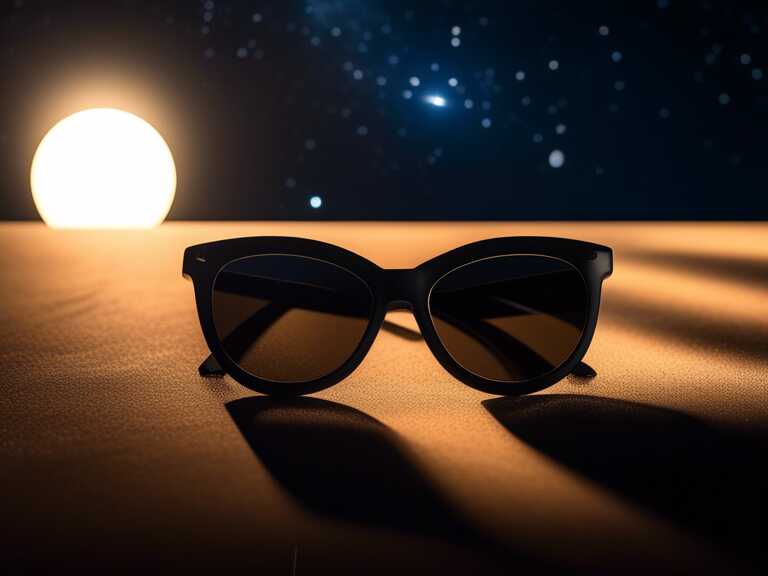
Are Your Eclipse Glasses Safe? Here's How to Tell Before the Total Solar Eclipse
In preparation for the 2024 total solar eclipse, ensure you have legitimate ISO 12312-2 eclipse glasses to protect your eyes.

As the 2024 total solar eclipse approaches, it's crucial to ensure that proper precautions are taken when viewing this rare astronomical event. One of the most important measures is obtaining legitimate eclipse glasses that adhere to safety standards to protect your eyes during the eclipse.
What Makes Eclipse Glasses Safe for Viewing?
It's essential to use eclipse glasses that meet the international safety standard ISO 12312-2. These glasses are specifically designed to reduce visible sunlight to a safe level and block harmful ultraviolet and infrared radiation, as outlined by the American Optometric Association. This standard is periodically reviewed every five years to ensure optimal eye protection.
Before purchasing eclipse glasses, it's recommended to check for the "ISO 12312-2" label, which signifies compliance with the international safety standard. Legitimate eclipse glasses will clearly display this information, and reputable vendors often advertise that their products meet this requirement. Additionally, NASA suggests a simple test - when wearing the glasses and looking at a bright light, the light should appear extremely dim or not visible at all, indicating the authenticity of the glasses.
Caution Against Fake Eclipse Glasses
Despite the international standard, there is a risk of counterfeit eclipse glasses being sold in the market. To mitigate this, it is advisable to purchase glasses from reliable sources and be cautious of suspiciously low prices. The American Astronomical Society warns against ordering from certain online marketplaces and recommends buying from reputable manufacturers based in the United States to ensure the authenticity of the product.
Precautions for Reusing Eclipse Glasses
For individuals considering reusing eclipse glasses from previous events, it's vital to thoroughly inspect the glasses for any marks, scratches, or punctured lenses, as per NASA's guidance. Damaged glasses may not provide adequate protection, and it's advised against using glasses that are over three years old, as indicated by the National Eye Institute. Therefore, if you have eclipse glasses from the 2017 eclipse, it's recommended to acquire a new pair for the upcoming 2024 event.
Alternatively, for those who opt not to purchase eclipse glasses, NASA proposes creating an indirect viewing method using a pinhole projector. By projecting the image of the sun onto a nearby surface through a small opening, individuals can safely observe the eclipse without direct exposure to the sun's rays. It's crucial to remember not to look directly at the sun when using this method to protect your eyes effectively.
Share news















